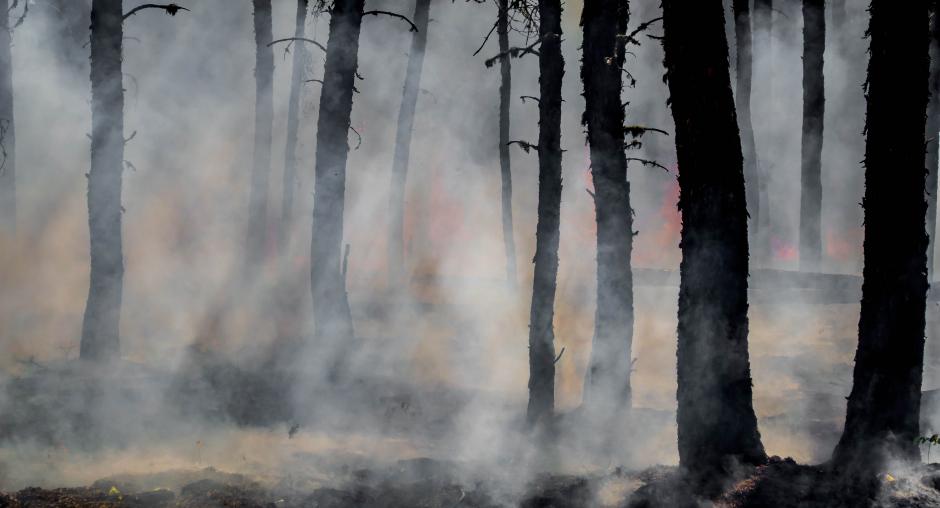OSCE facilitates cross-border co-operation on wildfire risk reduction for climate resilience in South Caucasus

On 4 July, the OSCE, in partnership with Berlin-based think tank adelphi, published a Scoping Study that analyses the current context of wildfire risk reduction, landscape fire management and transboundary co-operation in Northern Armenia and Southern Georgia with a focus on two pilot municipalities: Sarchapet in Armenia and Bolnisi in Georgia.
Building on the findings of the earlier report “Regional Consultation for the South Caucasus – Armenia and Georgia”, published in 2021, the study draws on the consultations with national and local stakeholders in Armenia and Georgia and the expertise provided by Global Fire Monitoring Center (GFMC). The study provides an overview of fire management-related challenges in the region, maps current projects, initiatives and key stakeholders, and lays out ideas for co-operation activities at the community level between the municipalities of Bolnisi and Sarchapet.
Fires pose a major risk to the South Caucasus region. With climate change, temperatures become warmer, precipitation levels change, and heatwaves and droughts become more frequent and intense. This creates conditions that are conducive to the occurrence and spread of wildfires, which can pose fires environmental, economic, social, and health risks, and undermine security. Given that these risks are likely shared by neighbouring communities across borders, co-operation is crucial for addressing them in a holistic and sustainable manner.
The next steps will be to establish a co-operation strategy and implementation plan followed by pilot initiatives to operationalize cross-border co-operation on fire risk reduction for strengthening climate resilience.
This scoping study was prepared within the framework of the OSCE extra-budgetary project “Strengthening responses to security risks from climate change in South-Eastern Europe, Eastern Europe, the South Caucasus, and Central Asia”, which is implemented by the Office of the Co-ordinator of OSCE Economic and Environmental Activities (OCEEA) in partnership with adelphi and funded by Andorra, Austria, Czech Republic, Finland, France, Germany, Italy, Japan, Liechtenstein, Luxembourg, Norway, Poland, Sweden, Switzerland and the United States. The project is part of the OSCE’s active effort to support its participating States in implementing the 2021 OSCE Ministerial Council Decision on climate change.
